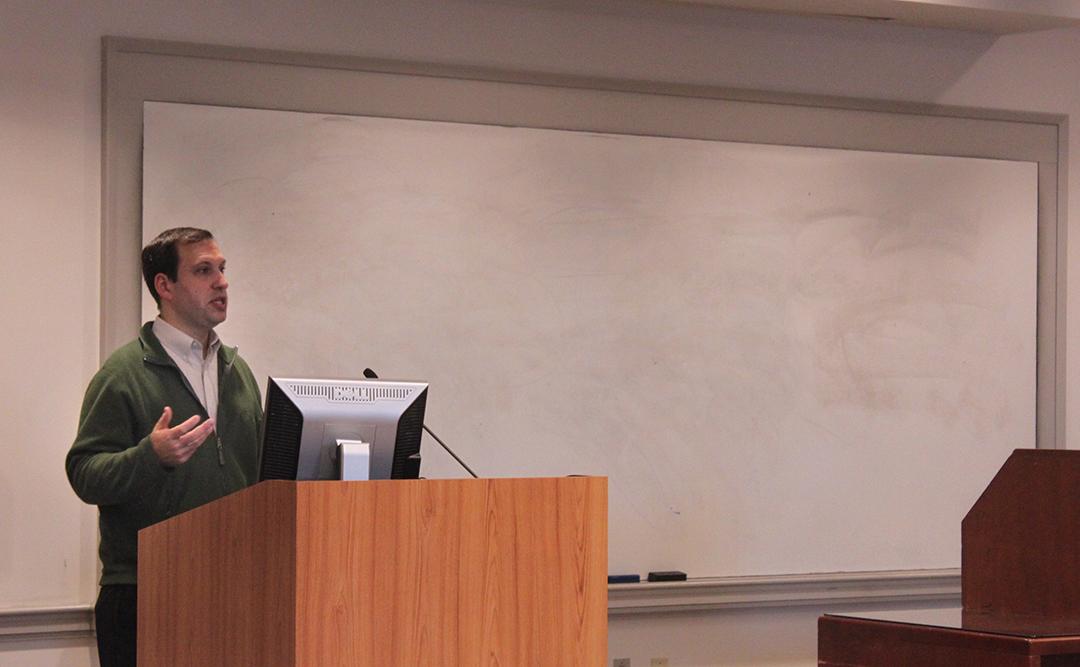
CSL's third Faith In Action event of the semester featured Professor Mark Rienzi, lead counsel for the Little Sisters of the Poor, an order of Catholic nuns in service to the indigent elderly. Professor Rienzi is representing the Sisters in their lawsuit against the government, Little Sisters of the Poor v. Burwell.
The case, on appeal from the Tenth Circuit, was just granted certiorari by the United States Supreme Court in November, and concerns the Sisters' claim that their religious freedom is being unconstitutionally infringed by the Department of Health and Human Services. Implementing the Affordable Care Act, also known as Obamacare, the HHS has issued regulations that require all health care plans to cover contraception, a practice at odds with the Catholic faith.
Because the Sisters' apostolate is to run nursing homes for the indigent elderly and they employ a considerable staff to aid in their work, they would have to comply with the law or risk millions of dollars in fines each year for refusing to do so. The Sisters do not qualify for a religious exemption, as they are not considered "religious" as the government defines the term.
With their mission in peril, the Sisters were forced to seek legal counsel to protect their religious faith. Professor Rienzi, who in addition to being a faculty member at CUA, is senior counsel at the Becket Fund for Religious Liberty, was honored to be selected for the job. Issues regarding human life, religious liberty, and freedom of expression are at the heart of why he practices law, said Rienzi. He began to devote his time to these causes even when he was still doing patent litigation at the start of his career.
Professor Rienzi explained why the Sisters cannot accept what the government calls an "accommodation." The government would allow the Sisters to sign a document saying that they can't themselves provide the birth control, but would nevertheless make them authorize others to do so for them.
That act compels the Sisters' complicity in providing something that they believe is immoral, which is no option at all, Rienzi pointed out. He also explained the reasoning behind the government's position, and how the volley of arguments has played out so far. The case will be the fourth Supreme Court religious liberty claim in which Professor Rienzi has been involved over the past few years.
